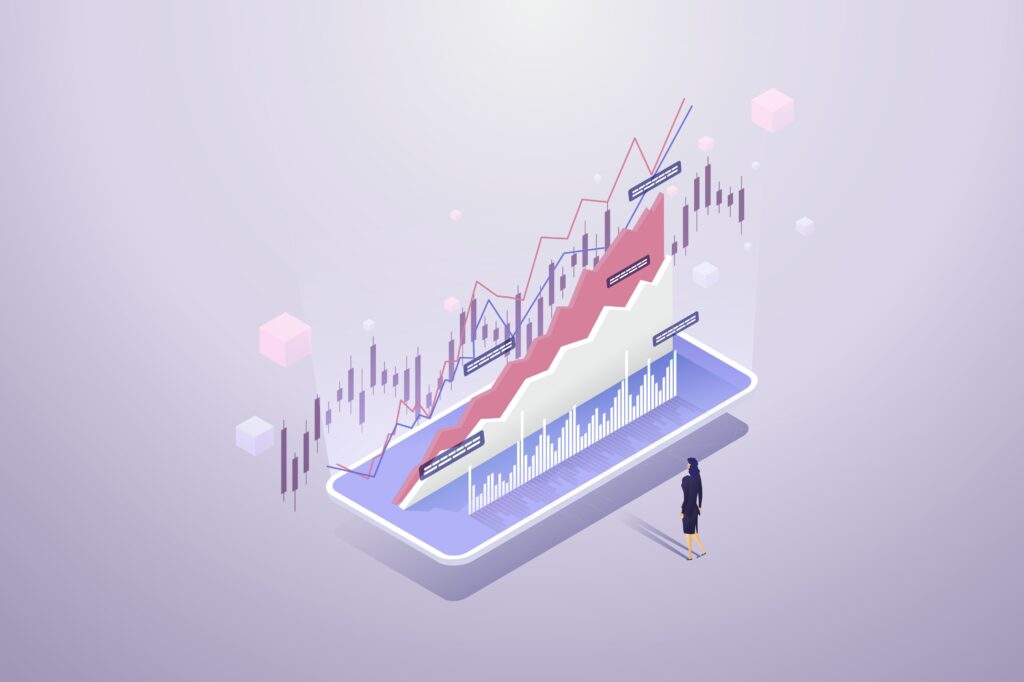In a nutshell:
- AI is a powerful tool for optimizing customer acquisition strategies in marketing.
- It can predict return on ad spend and optimize marketing budget allocation.
- AI-driven customer segmentation improves personalization and acquisition rates.
- Predictive lead scoring helps prioritize leads and increase personalization.
- Implementing AI tools and platforms can significantly enhance marketing optimization.
Ever feel like you're playing a game of hide-and-seek with potential customers? You know they're out there, but finding and acquiring them is a constant challenge. In today's highly competitive world, marketing professionals must find innovative ways to optimize customer acquisition strategies. Today, AI is here to help.
The power of AI lies in its ability to process vast amounts of data and draw actionable insights from it. For marketers, this means being able to make informed decisions and predictions about their campaigns, ensuring they are using their budget wisely, and maximizing their return on investment (ROI).
Explore how you can leverage AI for acquisition optimization in marketing. Among other techniques, predictive lead scoring can be used as a strategy for acquisition.
Whether you are a marketing manager or director, these valuable insights can help you harness the power of AI to optimize your customer acquisition strategies and drive business growth.
Photo by Markus Spiske on Unsplash
Leveraging AI for Customer/User Acquisition Strategies
In acquisition optimization, AI is an invaluable tool that can help you yield the maximum return on investment and drive business growth. From predicting return on ad spend to creating a strategic marketing mix, AI can revolutionize your customer acquisition strategies.
Predicting Return on Ad Spend With AI
One of the most complex parts of a marketer's job is forecasting the return on ad spend (ROAS). But what if AI could simplify this task?
Data-Driven Insights for Ad Spend Optimization
AI algorithms can analyze historical data to predict ROAS accurately. They do this by examining past ad campaigns, the associated costs, and the resulting customer behaviors. These predictions can help marketers decide where to invest their ad dollars for maximum impact. By using the data-driven insights provided by AI, marketers can optimize their ad spend, reducing costs and increasing ROI.
Marketing Mix Modeling With AI
Another significant area in which AI can help is marketing mix modeling (MMM). It is a statistical analysis technique marketers use to measure the impact of various marketing channels on sales and then optimize the marketing budget allocation.
While MMM has a longstanding reputation as a slow, expensive, and inaccessible technique, AI is transforming the way marketing mix modeling is done today by using machine learning algorithms and big data.
AI can process vast amounts of data from different marketing channels far faster, analyze the effectiveness of each channel, and provide insights into how each contributes to sales or other important business outcomes. That even includes offline channels that can be tough to measure.
It can also simulate different budgeting scenarios to predict the potential impact on sales, thus enabling marketers to reallocate their budgets effectively to achieve the best results.
Moreover, AI-powered marketing mix modeling can adapt to changes in market conditions, consumer behavior, and business strategies, making it more flexible and accurate than traditional methods.
Understanding the Impact of Marketing Channels
Different marketing channels will have different levels of impact on your sales. Some may lead to direct conversions, while others play a role further up the sales funnel, generating awareness or interest.
AI can analyze the impact of each channel on the final sales outcome, providing a more thorough understanding of how your marketing mix is performing.
Optimizing Marketing Budget Allocation
Once you know the impact of each marketing channel, you can use AI to optimize your budget allocation. Instead of guessing where to put your money, you can use AI to allocate your budget based on predicted outcomes. You're investing in the channels most likely to deliver the best ROI, making your marketing efforts more efficient and effective.
Photo by Daniel Salgado on Unsplash
The Benefits of AI for Acquisition Optimization in Marketing
AI has immense potential to revolutionize acquisition optimization marketing, unlocking numerous benefits that can help improve your marketing strategy's efficiency and effectiveness. AI can significantly improve your acquisition optimization efforts by enhancing targeting and personalization.
AI-Driven Customer Segmentation
AI algorithms can sift through extensive amounts of data to identify patterns and trends, leading to successful customer segmentation. Two key metrics form the basis of this segmentation: churn prediction and lifetime value prediction.
Churn prediction forecasts the likelihood of a customer discontinuing their product or service use. Lifetime value prediction estimates how valuable a customer will likely be throughout their company relationship.
Utilizing AI for customer segmentation allows for a more personalized marketing approach, significantly improving customer acquisition and retention rates.
Maximizing ROI From Marketing Campaigns
Another critical benefit of using AI in acquisition optimization marketing lies in its ability to maximize ROI from marketing campaigns.
AI-Powered Campaign Performance Analysis
AI can predict customer lifetime value, which gives marketers a clear understanding of the return on ad spend from a campaign. By making spending adjustments early on, based on AI predictions, campaigns can become more efficient, increasing the ROI by improving revenue generation and cutting unnecessary costs. Thus, AI becomes an invaluable tool for marketers to optimize campaigns and drive business growth effectively.
Predictive Lead Scoring as Another Strategy for Acquisition Optimization with AI
Predictive lead scoring is another AI-powered tool that uses complex algorithms to analyze various data points, assigning each lead a score. This score indicates the probability of a lead becoming a potential customer based on their interactions, engagement, and specific demographic details. This scoring system provides an objective method for teams to prioritize leads and optimize their outreach strategies.
Improving Customer Acquisition With Predictive Lead Scoring
The application of predictive lead scoring can significantly improve the acquisition of customers. Its ability to identify high-quality leads helps to streamline marketing and sales initiatives, focusing efforts on the prospects most likely to convert.
By examining a lead's score, sales teams can engage in more efficient, proactive outreach, focusing their energy on the most promising leads rather than wasting time on those that will likely not convert. In turn, this boosts sales productivity and efficiency.
Predictive lead scoring can lead to better alignment between marketing and sales efforts. By generating scores based on data collected by both teams, predictive lead scoring helps to form a unified approach to customer acquisition, ensuring everyone is working towards the same goals.
Photo by Boudewijn Huysmans on Unsplash
Increasing Personalization With Predictive Lead Scoring
Predictive lead scoring does more than prioritize leads. It can also increase the level of personalization in your marketing efforts. Since predictive lead scoring utilizes data like a lead's background, behavior, and preferences, you can use these insights to tailor your marketing messages, making them more relevant and engaging. This personalized approach can increase click-through rates, improve conversion rates, and boost customer satisfaction.
By using AI for predictive lead scoring, you can acquire more customers and create a more personalized and satisfying experience for your potential customers, setting the stage for long-term customer loyalty and success.
Implementing AI Solutions for Acquisition Optimization
Artificial intelligence has provided us with numerous tools and platforms that can significantly enhance acquisition optimization marketing. These AI solutions offer valuable capabilities, from predicting ROAS to predictive lead scoring.
AI Tools and Platforms for Marketing Optimization
Several AI tools and platforms designed specifically for marketing optimization are available on the market. For example, platforms like Google's AutoML, IBM Watson, Salesforce Einstein, Adobe Sensei, and (of course!) Pecan offer powerful AI capabilities for analyzing data, creating predictions, and optimizing marketing campaigns.
Incorporating these tools can help marketers better understand customer behavior, predict trends, automate tasks, and make data-driven decisions fast, thereby significantly boosting the efficiency, effectiveness, and ROI of marketing campaigns.
Considerations for Integrating AI Into Marketing Strategies
Integrating AI into your marketing strategies can be a game-changer. However, it’s essential to consider certain factors before making this move. First, identify your specific needs and goals. What do you want to achieve with AI? Is it predicting ROAS, enhancing personalization, or predictive lead scoring?
Next, assess the data you have available. AI thrives on data. The more quality data available, the more accurate and beneficial the AI outputs. However, some AI platforms — including Pecan — can prepare and clean your data automatically, making sure it's ready for AI with minimal effort on your part.
Lastly, consider the potential impacts on your team. Will AI integration require additional training? How will roles and responsibilities shift? You can prepare for a smoother transition to AI-powered marketing by anticipating these changes.
Photo by Markus Winkler on Unsplash
Use AI for Acquisition Optimization in Marketing
AI is a powerful tool in acquisition optimization marketing, opening up a world of possibilities. From predicting ROAS and marketing mix modeling to enhancing targeting and personalization, AI has the power of predictive lead scoring and more.
As we move forward, AI's role in acquisition optimization will only expand. Future trends and advancements might involve the development of more sophisticated AI algorithms for data analysis, integrating AI with other evolving technologies like virtual reality or blockchain, and creating more user-friendly and affordable AI tools for businesses of all sizes.
Marketing professionals must leverage AI in their acquisition optimization strategies to stay competitive in today's digital world. The ability of AI to process vast amounts of data and derive actionable insights from it is unparalleled. As such, the use of AI in marketing is not just a growing trend but a necessity to drive business growth.
Want to explore further how AI can support your marketing team's acquisition optimization efforts? Let us give you a guided tour of what Pecan can do for you.








